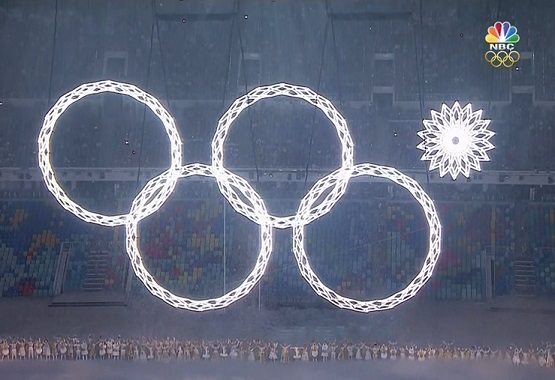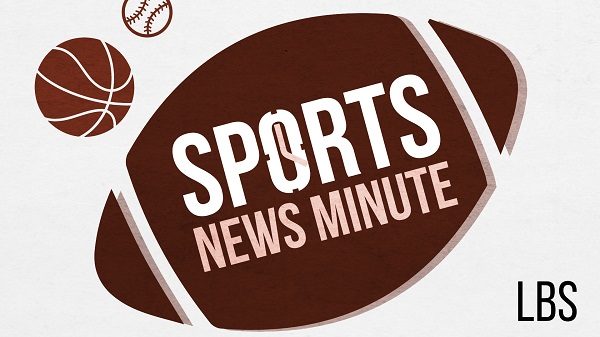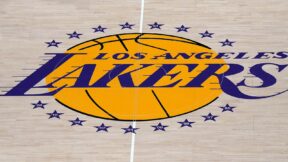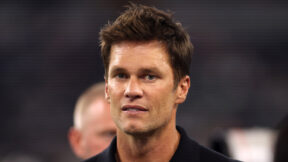10 biggest storylines leading up to Winter Olympics

It may be hard to believe, but the 2018 Winter Olympics are upon us. The Games come at an interesting time given American, South Korean and North Korean political relations, but as the opening ceremony approaches, differences are being set aside in an effort to allow the Olympics to go off peacefully.
There are many stories to look forward to at the upcoming Games. Here’s a look at the 10 biggest storylines leading up to the 2018 Winter Olympics.
1. Four new events added
The International Olympic Committee (IOC) recognized that times are changing and, as a result, they have added four new events for the 2018 Winter Olympics. Athletes will now compete in big air snowboarding and freestyle skiing, as well as mass start speed skating and mixed doubles curling.
As entertaining as big air snowboarding and freestyle skiing may be, most American viewers will undoubtedly be drawn to mixed doubles curling because of how popular the sport has become in recent years. In fact, outside of hockey, it may end up being the most-watched event of the Olympics (seriously…). The addition of these four events adds a little extra flavor to the Games this year.
2. NHL takes a pass on 2018 Winter Olympics
In April of 2017, the NHL officially announced that they would not participate in the 2018 Winter Olympic Games. An official statement cited disruption of the 2017-2018 season as one of the reasons.
“We have previously made clear that while the overwhelming majority of our clubs are adamantly opposed to disrupting the 2017-18 NHL season for purposes of accommodating Olympic participation by some NHL players,” the NHL’s statement said in part.
Other issues stemmed from the IOC’s refusal to pay for travel, insurance, accommodations and other costs for NHL players, which it had done previously. And while other entities stepped up to cover those costs, there were ultimately too many issues to overcome. The National Hockey League Players’ Association (NHLPA) and the league’s players were not happy with the NHL’s decision, but with the Olympic Games now looming, the vast majority of players have reluctantly packed it in and accepted they would not be participating in 2018. It will be the first time NHL players were left off Olympic rosters since 1998.
3. Nigeria gets first-time Winter representation with female bobsled team
Nigeria has been participating at the Olympics since 1952 with the sole exception of 1976 Summer Games, which were boycotted, but never before had they been represented at the Winter Games. That is, until 2018.
Seun Adigun, Ngozi Onwumere and Akuoma Omeoga, a trio of women, became the first-ever Nigerians to qualify for the Winter Olympics. And if that weren’t impressive enough, they are actually Africa’s first-ever bobsled team — male or female — to compete in the Winter Olympics.
“I basically got into the sport of bobsledding in 2015 after a little bit of a hiatus from athletics,” Adigun told PEOPLE. “I also learned that Nigeria, the country, had never had any Winter Olympians … And then to cap it off, I learned that the continent of Africa had never been represented, man or woman, by any bobsled team. So I was like, ‘Okay, this is obviously something that is gonna hang over my head if I don’t step in and try and do something about it.'”
The group initially turned to crowd-sourcing to cover their Olympic expenses, including travel, but VISA eventually stepped in to fund them. As a result, we’ll all get to witness more history.
4. North Korea agrees to send athletes to Olympics
In what was considered a remarkable and unexpected breakthrough, North Korea agreed to send athletes to South Korea to participate in the 2018 Winter Olympic Games. The decision stunned many as tensions between the two nations have continued to escalate in recent months over the North Korea’s nuclear and missile program.
In addition to athletes, North Korea will also send a cheering squad and a performance-art troupe to South Korea. This will mark North Korea’s first participation in the Winter Olympics in eight years, and a dramatic change in political policy. Just prior to the 1988 Summer Olympic Games in Seoul, which the North had boycotted, a bomb was planted on a Korean Air passenger plane, killing all 115 on board. The South believed the terrorist attack was aimed at sabotaging the Games.
It is not known if the North attached any conditions to its decision to attend, but the IOC has agreed to help cover the athletes’ expenses, including travel. A safe route to the Games is still being determined.
5. Russia banned from 2018 Winter Olympics
In December of 2017, the IOC officially announced that the Russian Olympic Committee was suspended from the upcoming Olympic Games due to a doping controversy. The ban came more than a year after the World Anti-Doping Agency concluded “beyond a reasonable doubt” that the Russian Anti-Doping Agency (RUSADA), Ministry of Sport, Federal Security Service (FSB) and Centre of Sports Preparation of the National Teams of Russia had “operated for the protection of doped Russian athletes” within a “state-directed failsafe system.”
It was alleged that nearly a third of all Russian medals won during the Sochi Olympics were by athletes who were illegally doping. Ultimately, there will not be a Russian team during the 2018 Games, but several Russian athletes will be allowed to compete under the designation Olympic Athlete from Russia (OAR) and will sport a neutral Olympic flag.
6. First openly gay man qualifies for Olympics
On Jan. 7, figure skater Adam Rippon qualified for the 2018 Winter Olympics and in doing so, became the first openly gay man to represent the American flag at either the Summer or Winter Games. “I am so excited to be going to my first Olympics in a few weeks,” Rippong tweeted after qualifying. “Being the first out male selected to represent the [flag] at a Winter Olympic Games is awesome.”
In addition to blazing a path for the U.S., Rippon feels a sense of responsibility to show athletes from countries like Morocco, Togo, Kenya, Eritrea, Dominica, Uzbekistan, Iran, India, Pakistan, Malaysia and Singapore, which outlaw homosexuality, that there’s nothing wrong or “weird” with being a gay man.
“Yes, there will be countries represented that don’t give rights to their gay citizens,” Rippon told Newsweek. “But that’s why it’s important that someone like me can go to the Olympics and show people that yes, I’m an out gay athlete, and being gay has nothing to do with who I am as an athlete.”
At 28 years old, Rippon will also become the oldest U.S. figure-skating Olympic rookie since 1936.
7. Transgender athletes allowed to compete for first time
For the first time, the IOC has ruled that transgender athletes can take part in the Olympics. Female-to-male athletes can compete “without restriction,” while male-to-female athletes must undergo hormone therapy. Previously, IOC guidelines called for athletes to have reassignment surgery followed by at least two years of hormone therapy in order to be eligible. The only remaining regulation is that male-to-female athletes must demonstrate that their testosterone levels have consistently been below the cutoff point for at least one full year prior to competition.
“It is necessary to ensure insofar as possible that trans athletes are not excluded from the opportunity to participate in sporting competition,” the IOC said in a statement. “The overriding sporting objective is and remains the guarantee of fair competition. To require surgical anatomical changes as a precondition to participation is not necessary to preserve fair competition and may be inconsistent with developing legislation and notions of human rights.”
Even among some of the transgender athletes, debate will rage about what’s fair and what’s not. Regardless of what side anyone comes down on, history will be made in Pyeongchang as transgender athletes compete without surgery for the first time.
8. Zahra Lari will compete wearing a headscarf
Along with an openly gay man and transgender athletes, the 2018 Winter Olympics will also see the first professional figure skater to compete internationally wearing a headscarf. Zahra Lari, a 22-year-old from the United Arab Emirates, will become the first skater from a Persian Gulf state to participate in international figure skating competition. And for those watching at home, along with her headscarf, Lari’s attire will be dramatically different from what they’re accustomed to seeing — she will don opaque cloth, covering her legs and matching her headscarf.
During the European Cup in Canazei, Italy in 2012, Lari had points deducted from her performance due to a “outfit violation,” but that will be a non-issue during the Winter Games in Pyeongchang, where her attire will be permitted. Ultimately, Lari has bigger goals than just the Olympics.
“My goals go beyond being the first person to represent the UAE at a Winter Olympics,” she told The Independent. “I want to compete at the Four Continents Figure Skating Championships and the World Championships. These competitions are my current goal.”
9. U.S., South Korea delay military exercises until after Olympics
With diplomatic tensions between North Korea and South Korea a concern, South Korean President Moon Jae-in requested that all U.S.-South Korean military exercises be delayed until the conclusion of the Winter Olympic Games. After a brief phone call in early January, U.S. President Donald Trump agreed.
“President Donald J. Trump spoke today with President Moon Jae-in of the Republic of Korea to discuss recent developments on the Korean Peninsula. The two leaders agreed to continue the campaign of maximum pressure against North Korea and to not repeat mistakes of the past. The United States and the Republic of Korea are committed to a safe and successful 2018 Winter Olympic Games in Pyeongchang. President Trump told President Moon that the United States will send a high-level delegation to the Olympics. The two leaders agreed to de-conflict the Olympics and our military exercises so that United States and Republic of Korea forces can focus on ensuring the security of the Games,” the White House said in a statement.
Not every American politician agreed with the decision, but most believe that in the interest of the athletes’ safety, it was the right call.
10. NBC will stream Olympics in VR
New events won’t be the only history made during the 2018 Winter Olympics. In fact, quite a few things on this list will mark history being made, including more than 50 hours of Olympics available in VR. NBC will provide more than 50 hours of virtual reality coverage for authenticated users with Windows Mixed Reality headsets, Samsung Gear VR, and both Google Cardboard and Google Daydream using compatible iOS or Android devices through the NBC Sports VR app. The coverage will include opening and closing ceremonies, as well as most events. NBC will also offer once daily 360-degree videos of a sport not available in VR the previous day. How amazing is that?







